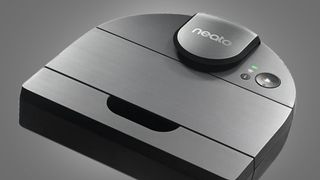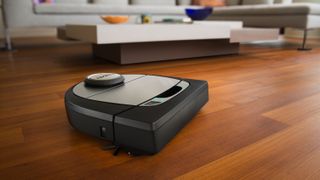Neato robot vacuums bite the dust – here's what the shutdown means for you
Neato's cleaning days are numbered

One of the best robot vacuum makers around, Neato Robotics, is sadly being shut down, marking the end of an 18-year journey for the robovac pioneer.
Neato's owners, the German company Vorwerk, announced in a press release that "Neato will now be closed despite restructuring efforts", as the company had "not achieved the economic goals it has set itself for several years".
We're big fans of the Neato D10, calling it "the best robot vacuum for allergy sufferers", so the news that it won't get any successors is a real shame. Of course, you're probably also concerned if you already own a Neato vacuum, but existing models will at least find support for some time to come.
According to the press release, spare parts and a repair service for Neato vacuums will be "guaranteed for at least five years". Vorwerk will also have a team set up “to ensure the security of the infrastructure of Neato’s cloud services for at least five years".
Your Neato robot vacuum can, then, trundle around your home for the next several years, safe in the knowledge that it still has software and hardware support. But the news shows how competitive the robovac space has become in the past few years.
Neato hasn't announced any new products since IFA 2020, when the latest D10 arrived, so the news that it'll no longer be making new models isn't exactly a shock. But the dominance of iRobot's Roombas, plus budget models from the likes of Eufy and Yeedi, has made robot vacuums a fiercely competitive space, and one that no longer has a place for poor Neato.
Analysis: Farewell to a robovac trailblazer

Neato was founded in 2005, but it didn't release its first robot vacuum – the XV-11 –until 2010. That model was a technological treat, challenging iRobot's Roomba despite its $400 price tag. In the decade since, Neato's vacuums have made a strong contribution to robovac technology.
Get daily insight, inspiration and deals in your inbox
Get the hottest deals available in your inbox plus news, reviews, opinion, analysis and more from the TechRadar team.
Neato's D-shaped vacuums – which made it easier for them to sidle into your room's corners – were one of the first to use LiDAR technology to help map your room in darkness. The company's BotVac Connected model was also among the first to offer Wi-Fi connectivity to help it connect to companion apps.
In both cases, Neato was able to steal a technological march on its main rivals, the Roomba, along with others like the Dyson 360 Eye and Samsung's Powerbot series. The addition of Wi-Fi also opened the door to voice control on the likes of the Neato Botvac D7 Connected.
While it wasn't the very first maker of robot vacuums – that honor to Electrolux and its Trilobite, which was first demoed in 1996 – Neato has left its mark on the cleanliness-obsessed robots. From here, Neato's parent company Vorwerk will fold its technology into a new R&D site that will apparently develop "both professional and consumer robotics systems".

Mark is TechRadar's Senior news editor. Having worked in tech journalism for a ludicrous 17 years, Mark is now attempting to break the world record for the number of camera bags hoarded by one person. He was previously Cameras Editor at both TechRadar and Trusted Reviews, Acting editor on Stuff.tv, as well as Features editor and Reviews editor on Stuff magazine. As a freelancer, he's contributed to titles including The Sunday Times, FourFourTwo and Arena. And in a former life, he also won The Daily Telegraph's Young Sportswriter of the Year. But that was before he discovered the strange joys of getting up at 4am for a photo shoot in London's Square Mile.
Most Popular


